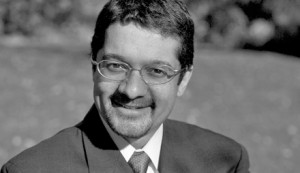 Two poster sessions will highlight the research of undergraduate and graduate students this week during Binghamton Research Days.
Two poster sessions will highlight the research of undergraduate and graduate students this week during Binghamton Research Days.
The presentations, which will take place at 11 a.m. and 2 p.m. Friday, April 19, are just one part of the three-day event scheduled for April 17-19. Research Days was first held last year, shortly after the opening of the Undergraduate Research Center.
“This year, we started earlier, went out with better information and we encouraged people to become involved,” Undergraduate Research Center Director Janice McDonald said. “This is an event for the entire community.”
This year’s Research Days will feature more events in more places, along with more student poster submissions from a greater variety of disciplines, McDonald said.
Events include tours of research facilities such as the Engineering and Science Building and the Analytical and Diagnostics Laboratory; student and faculty research panels; and tours for local eighth-graders. A complete list of events may be found at http://go.binghamton.edu/researchdays.
Another new feature is a keynote speaker: Shankar Vedantam, a science correspondent for National Public Radio. Vedantam, who spent 10 years at The Washington Post before joining NPR in 2011, is the author of “The Hidden Brain: How our Unconscious Minds Elect Presidents, Control Markets, Wage Wars and Save Our Lives.” He will speak at 7:30 p.m. Wednesday, April 17, in the Mandela Room.
Vedantam’s talk, which is also being promoted by WSKG, brings more visibility to Research Days and could appeal to Greater Binghamton residents, said Donald Loewen, vice provost for undergraduate education.
“What can we do to present the impact of research on the community and the world more broadly?” he said. “This (talk) gives us an entry to the community and presents them with a chance to come in and see Binghamton University as a research institution.”
The student poster sessions will be linked by a Campus Research Celebration at 1 p.m. Friday, April 19, in Old Union Hall. President Harvey Stenger and other University leaders will discuss the importance of research, while award-winning student researchers will be recognized. Those being honored include two Goldwater Scholarship recipients and the 12 recipients of the 2013 Summer Scholar and Artists Program Fellowship. Faculty mentors will also be saluted.
Not all students get the chance to present research at national conferences, so the poster sessions will provide a great opportunity for many, McDonald said.
“The students who are presenting research love to talk about it and have people engage them,” she said. “They like to be questioned or challenged and go into more detail about their work. They are looking forward to the sessions.”
The sessions are also valuable for students who are considering their own research projects, McDonald added.
“We know undergraduates are very, very interested in doing research,” she said. “They want to see what other students are doing and what they are capable of doing. It’s an educational process for those who aren’t doing research yet. They can say: ‘This is what I can do and get involved in.’”
Faculty can benefit from attending the sessions, too, Loewen said.
“It’s amazing to find out what students from different disciplines are doing on campus,” said Loewen, who is urging faculty members to discuss their own research with students in classes over the three days. “I hope this will inspire faculty to think about ways that they can collaborate with students in their own discipline.”
Loewen and McDonald praised the support that Research Days has received from the University community. They singled out Rachel Coker, director of research advancement, for organizing many of the events, and Shanise Kent, associate director of the McNair Scholars Program, for leading the poster sessions.
“We’ve gotten tremendous cooperation from everybody in terms of participation,” Loewen said. “Everybody has been extraordinarily cooperative.”
Loewen and McDonald agree that Research Days is one important step in advancing undergraduate research on campus. “People are talking,” McDonald said. “More people are becoming aware of (research). It’s getting into people’s awareness. It’s an ongoing process that will take time.”
“One of our fundamental objectives with Research Days is to help all of our undergraduates — even those in big, 100-level classes — understand: ‘You are part of a research university. What does that mean?’” Loewen said. “If they stop in the Mandela Room (on Friday), they are going to see some amazing projects. They will see the kinds of research their peers are conducting. That’s a good educational experience for someone to have.”







